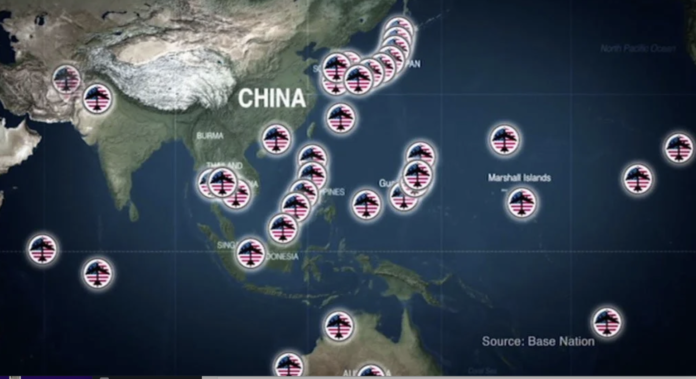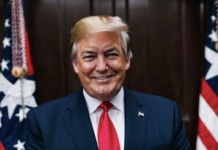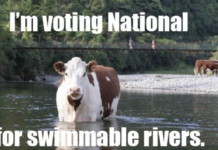Australia and China’s relationship thaws a little
Australia and China’s relationship warmed a little last week when Australia’s Prime Minister, Anthony Albanese visited China. It is seven years since an Australian Prime Minister visited China, and the trip was an opportunity for China’s President Xi Jinping and Prime Minister Albanese to start thawing the tense diplomatic relationship.
Discussion at the meeting included visas, trade, tourism, climate change and energy policies. The most significant immediate changes are likely to involve China removing more of its tariffs imposed on Australian wine and food imports after Australia’s 2020 call for an investigation of COVID 19’s origins. The original tariffs had an impact of about $ 20 billion annually, but reduced over time to about $ 2 billion, an amount that Australia would like to reduce further.
Prime Minister Albanese’s visit builds on the recent hard work of Penny Wong, Australia’s Minister of Foreign Affairs and is an important opportunity to maintain dialogue between the two countries because there is still a long list of security issues they disagree about. Later this week, United States President Joe Biden will meet with President Xi, hopefully building on this meeting to develop the dialogue providing more opportunities to address security issues.
Australia shares a key military command with Papua New Guinea
Australia recently announced the appointment of a Papua New Guinean officer as Deputy Commander of one of its three combat brigades. Lieutenant Colonel Boniface Aruma, will soon assume the role of Deputy Commander 3rd Brigade.
3rd Brigade is a powerful fighting force based in Townsville. It includes two battalions of infantry and an armoured cavalry regiment supported by artillery, engineers and aviation. A total strength of about 3,500-4,000 soldiers or roughly one third of Australia’s deployable land combat power.
This appointment demonstrates that Australia values its relationship with Papua New Guinea. Military officers often serve in the militaries of other nations, it is a way to develop trust and confidence between armies that may serve together in future operations. However, deputy command positions are unusual and different to many officer exchanges. A deputy commander is not a staff officer, hidden away in a headquarters, they are a very visible and important part of the command team.
It is a relatively common practice internationally for coalitions to share key command positions. The senior partner providing the commander and a smaller partner providing the deputy commander. The most well-known example is NATO’s command structure, the Supreme Allied Commander Europe is always an American and their deputy is always from within the alliance, normally from either the United Kingdom or Germany the next largest partners.
This appointment sends many signals to the military community, the most important of which is that Australia is thinking about future Melanesian deployments working with Papua New Guinea, so is starting to build the personal relationships and trust it will need to be successful operationally. If conflict arises in Melanesia, an Australian brigade or brigades will provide headquarters groups responsible for managing land operations. It is possible that Papua New Guinean units might ‘slot into’ an Australian brigade and this appointment is a way of practicing integrated command relationships during peacetime. Additionally, it demonstrates Australia’s willingness to treat Papua New Guinea as a military partner rather than a subordinate.
Pacific Islands Forum an update
Tension over appointment of a new Secretary General
The Pacific Islands Forum included controversy over the appointment of a new Secretary General. During the process, procedural questions were raised about the nominee Baron Waqa, a former president of Nauru. Mr Waqa is a controversial figure and the debate led to the withdrawal and early return home of Nauru’s President, David Adeang before Mr Waqa was elected,
The tension stems from events that occurred during Mr Waqa’s tenure as President of Nauru. His term coincided with Australia’s use of the island to process asylum seekers. A hotly debated arrangement. Mr Waqa’s presidency also included major reforms of the nation’s judiciary that caused international concern. He was also accused of bribery, an allegation he denies.
Previous nominees for Secretary General are highly respected ex-diplomats or politicians, so the nomination of Mr Waqa is unusual. However, there are larger forces at play, the Pacific Island Forum brings together nations from three regions; Micronesia, Melanesia and Polynesia. In recent years, Micronesian nations have been at odds with the forum and discussed the option of withdrawal in 2021.
Nauru is a Micronesian nation, and the appointment of a Micronesian Secretary General is a way to bridge the divide and bring Micronesia back into the fold. It seems that some forum nations may not be entirely happy with the appointment but accept it to maintain the forum’s mandate and its stability.
This incident demonstrates the pressure Pacific nations face dealing with Sino-American competition. United, Pacific nations have a strong voice and have more influence on Chinese and American diplomacy. Currently, it seems that the forum’s members believe being flexible and retaining unity is more important than creating further controversy over Micronesia’s nominee.
Climate change and a fossil fuel free Pacific
The Pacific Islands Forum is very focused on the impact of climate change. Many Pacific Island nations are severely affected by climate change, already feeling the impact of increasingly powerful storms and sea level rise.
In March this year a group of member nations; Tonga, Tuvalu, Fiji, Niue and Solomon Islands issued the Port Villa statement calling for a fossil fuel free Pacific.
Climate change was discussed at this week’s forum; however, the full group was not as committed as the Port Villa group issuing a more aspirational statement.
Deep sea mining
Deep sea mining has the potential to cause division within the region, Melanesian members oppose it and other nations like Nauru and the Cook Islands are in favour of it, actively working with mining companies to investigate options for extracting minerals from the seabed. Cook Islands Prime Minister, Mark Brown the forum’s host even gifted visiting members mineral nodules as official gifts.
The key issue is that the enormous economic potential of mining the Pacific’s seabed cannot be under-estimated, and some nations will value this benefit higher than the potential for environmental damage.
The problem is that if deep sea mining damages one nation’s ecosystems, the impacts may be felt further afield as fish stocks and bio-diversity decrease over wide areas. This issue is likely to be debated more vigorously in the future and may even evolve into security problems as nations either: compete for mineral rights or oppose other nation’s mining activities.
Sino-American competition
This year’s Pacific Islands Forum included plenty of discussion about Sino-American competition. Many leaders expressing their desire to focus on local issues like economic development and climate change. The most important discussion coming from Fiji’s Prime Minister, Sitiveni Rabuka who continued to flesh out his proposal for a Pacific ‘zone of peace.’ An idea that hosting Prime Minister Mark Brown suggested could be discussed at next year’s forum.
Chinese investment in the Pacific reducing
Last week, the latest Lowry Institute Pacific Aid Map was published, confirming that Chinese lending to Pacific nations is reducing. The institute reports that Chinese development finance in the region dropped from an average of $ 285 million before COVID 19 to approximately $ 241 million in 2021.
China has reduced its lending in the Pacific and it seems that Pacific nations view Chinese loans as more expensive and higher risk than borrowing from international institutions or Australia.
The map also dispels the idea that China is the Pacific’s major lender, Australia holding this title, responsible for about 40% of overseas development finance between 2008 and 2021.
China’s current approach to development finance in the region appears to be based on supporting a larger number of small projects. Alexandre Dayant, a Lowery Institute spokesperson stating that “The average size of a Chinese project has moved from $40 million to only $5 million.”
This approach is consistent with developing relationships and political influence in the region. By funding more smaller projects China can get more ‘bang for its dollar,’ by funding projects for many key influencers rather than a few large projects.
For more information here is a link to the map – https://pacificaidmap.lowyinstitute.org/
Melanesian update
A regular update on the Pacific’s least reported trouble spot; Melanesia.
More Chinese police in Solomon Islands
China’s security relationship with Solomon Islands continues to develop, more Chinese police deploying to assist with security for the Pacific Games later this month. The games attract about 5,000 athletes and are a highlight of the Pacific sporting calendar.
Australia already has a contingent of about 50 police officers in Solomon Islands and expects this number to increase to about 150 during the games. The number of Chinese police supporting the event has not been confirmed.
Ben Morgan is a bored Gen Xer and TDBs military blogger





From imperialist tensions in the Pacific region, to the Ukraine war, and back to the Pacific.
During the most intense bombardment of a civilian population in modern times, the TDB milblogger skips over the middle East twice a week without a mention.
What does this tell us?
Maybe he thinks it is difficult to have a rational discussion about the harm in Gaza without offending someone? You do a good job of examining the situation there so as long as you keep contributing that will keep us informed.
Ta for the compliment.
The thing is, I value Ben Morgan’s take on such matters. Unlike most of the early commentators on the war in Ukraine, Ben Morgan picked the Ukrainian people to beat back the Russian Federation invasion and liberate their country from the very beginning. An estimation I agreed with.
Ben Morgan’s regular reports on the building inter-imperialist tensions in the Pacific region have also been informative and accurate
That Ben has steered clear of giving us his analysis of the conflict in the Middle East is disappointing.
Whatever Ben Morgan’s thoughts are on the war in Gaza, for whatever reason, he keeps them to himself.
I believe we would all benefit from reading Ben’s thoughts on this conflict, if he were to share them with us.
Why he doesn’t is a mystery.
Will the pause become a ceasefire?
US President Joe Biden has just tweeted that continuing the violence will be playing into Hamas’s hands.
Does this mean anything? Up till now the US Biden administration has opposed calls in the UN Security Council and the General Assembly for a ceasefire.
Is Biden’s tweet a signal of a change in direction for US policy on this war?
Or is the world getting their hopes up for nothing?
Ben should give us his opinion on these matters.
P.S.
Breaking news:. Biden has just deleted his tweet.
This is when we really need a military expert to tell us what this all means. For instance, is the White House fighting with itself?
There is no such thing as genuine Chinese Police. Their primary roll is identical to the military. It is not to uphold the law, protect the people or the security of the nation. Their main function is to protect the CCP and enforce their agendas. The police are little more than the PLA in a different uniform.
Oops Biden tweet still up. It just disappeared from my feed for a while.
Here it is
Joe Biden
@JoeBiden
Hamas unleashed a terrorist attack because they fear nothing more than Israelis and Palestinians living side by side in peace.
To continue down the path of terror, violence, killing, and war is to give Hamas what they seek.
We can’t do that.